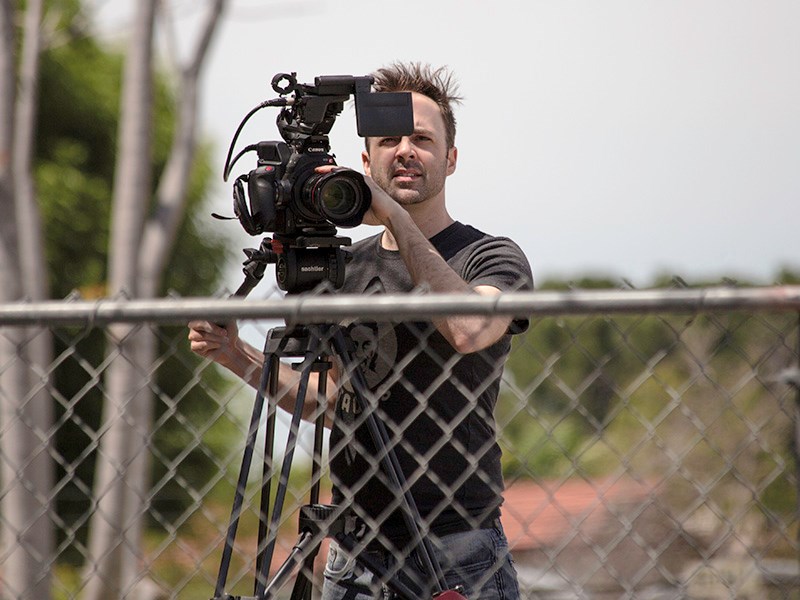Brett Harvey’s filmmaking career is going from strength to strength these days.
The Max Cameron Secondary School graduate’s most recent release, Ice Guardians (2016), a documentary about NHL hockey enforcers, was named Best of Film by Sports Illustrated and nominated for several awards at festivals across Canada and the United States. It was released this April on Netflix Canada, where it quickly became a trending film.
“The response has been overwhelming,” said Harvey.
During his high school years in Powell River in the 1990s, Harvey said he never dreamed of making movies, let alone having a successful career in the industry and travelling the world.
“Filmmaking was not a realistic option for me growing up,” he said. “Digital technology was in its infancy and quality video gear was virtually inaccessible.”
Because film classes were non-existent at the time, he attempted to convince teachers to let him turn school assignments into video presentations. That tactic only worked twice; for an assignment on Macbeth and a project on an Italian painter, he said.
“Those are the only two school assignments I still remember,” he added.
Harvey excelled in sports at school and was captain of the high school basketball team and involved in track and field. The year he graduated he was recognized as one of two athletes of the year.
“I remember him playing basketball and doing track for Max Cameron,” said Brooks Secondary School teacher Tony Rice. “He was a very well-liked student.”
After graduating, Harvey volunteered for the local cable station while attending what was then Malaspina College.
“I started shooting camera at local events,” said Harvey. “It was my only way to access video gear at the time, and I was able to ask technical questions to people who knew what they were talking about.”
Harvey used the experience to get into Capilano College’s Media Arts Diploma Program.
“From there I found my love: documentary storytelling,” he added.
The first feature documentary he directed and wrote, The Union: The Business Behind Getting High (2007), was about the underground marijuana industry.
“It was a small production that gained momentum we never could have predicted,” he said.
At the time, cannabis was still considered a taboo topic that no one was interested in investing documentary money into, he added.
The film toured the festival circuit in cities around the world, picking up various awards along the way, including National Film Board of Canada’s award for Best Canadian Documentary.
“We were even invited to be screened on Parliament Hill in Ottawa, to educate senators and members of parliament on the ramifications of marijuana prohibition,” he said.
Harvey made a follow-up film in 2014 entitled, The Culture High, that looks at the many changes in culture, policy and awareness around cannabis since that time. Currently, he is busy filming around the United States for his latest project, Inmate #1: The Rise of Danny Trejo, chronicling the life and career of an actor known for playing tough guys.
“Danny is one of the most fascinating characters I’ve ever met; he was a full-fledged armed robber for the majority of his youth,” said Harvey. “Upon his release from prison, he entered into one of the most illuminating transformations of human character.”
Although Harvey is now based in the Lower Mainland and travels frequently for work, he comes back to Powell River to visit his father whenever he can.
With diverse subject matter, from hockey enforcers and the cannabis industry to ex-convicts turned actors, the common thread in Harvey’s work is attempting to understand.
“It’s engaging the act of empathy,” he said. “You don’t have to agree with someone to empathize with them. Empathy is a tool to come to greater understandings, regardless of the topic.”



